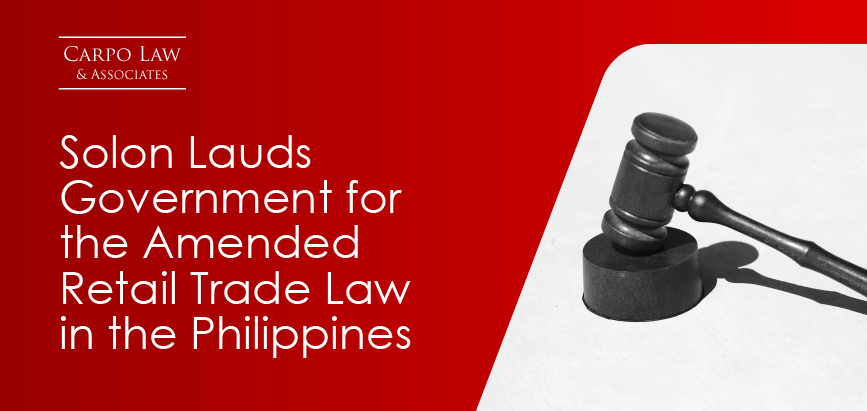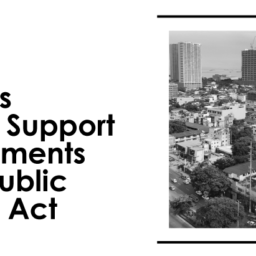
Solon Lauds Government for the Amended Retail Trade Law in the Philippines
Department of Finance (DOF) Secretary Carlos Dominguez III expressed his gratitude to both the administration and Congress for the passing of the Retail Trade Law that seeks to further improve the Philippine economy and open the country to more foreign direct investments (FDIs) and job creation.
Dominguez stated, “As we continue our path to recovery, the economic liberalization bills either passed or being considered by our lawmakers will be crucial to bringing in much needed foreign investments that would supercharge the economy and create a lot more jobs for Filipinos, more so at this time when the country is recovering from the pandemic-induced global health and financial crises.”
Republic Act (RA) No. 11595, which modified the Retail Trade Liberalization Act (RTLA), was signed into law by President Duterte in December and was released by the Palace last week.
Dominguez noted that the provision will simplify and ease restrictions for foreign retailers who wish to pursue a shop in the Philippines.
RA No. 11595, is one of the three investor-friendly measures endorsed by the President and whose passage was urged by Dominguez and the rest of the Chief Executive’s economic team.
The two other measures on the other hand are amendatory acts the Public Services Act (PSA) and the Foreign Investment Act (FIA).
The bicameral committee report on the modification to the FIA was approved by both houses on December 7, 2021, and it’s currently awaiting review by the Office of the President (OP).
Meanwhile, both the Senate and the house have endorsed their own version of the modified PSA, however, the revisions will need to go through bicameral proceedings before being approved by both chambers and then be submitted to the President for his approval.
Under RA 11595, the minimum paid-up capital pre-requisite for foreign corporations that wish to do business in the Philippines was lowered from ₱125 million to ₱25 million.
The requirements were also streamlined by removing required net worth, a certain number of retail branches, and retailing track record conditions.
Dominguez expressed, “By lowering the minimum paid-up capital and simplifying the qualification requirements for foreign retailers, the amendments will significantly aid in incentivizing foreign retailers to come in and create jobs. This will also enhance competition among enterprises, which will be beneficial to our consumers by providing more choices at lower and more competitive prices.”
In addition, Dominguez mentioned, “These are welcome changes from the previous rule that disproportionately favored already-large enterprises, prevented diverse smaller investors such as startups from entering the Philippine retail market, and complicated compliance for foreign retailers.”
The new legislation is also urging foreign investors to have a stock inventory of Philippine-made products.
Dominguez stated, “This will help protect our country’s small local manufacturers and encourage retailers to provide opportunities for locally-made products, despite being foreign-owned. We hope this will also aid in generating much-needed employment and income for Filipinos.”
Dominguez expressed his gratitude to Congress for writing the law and securing its benefits for both the country and its people.
Dominguez cited, “We deeply express our gratitude to our legislators for their determination in passing the amendments to the Retail Trade Liberalization Act. We also look forward to continuously working with them on the enactment of the remaining two economic liberalization bills.”
Dominguez also lauded the National Economic and Development Authority (NEDA) for driving the passage of the economic liberalization bills, together with the rest of the Economic Development Cluster (EDC) of the Cabinet.
Dominguez stated, “We thank [the administration] for this timely approval of the proposed law and our fellow economic managers in the executive branch for leading the push to further liberalize our economy.”


